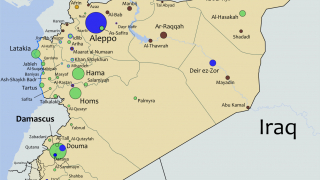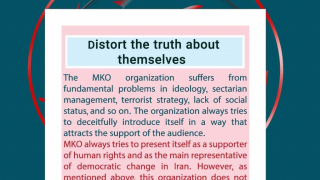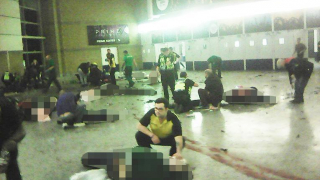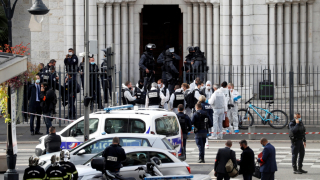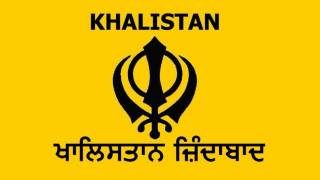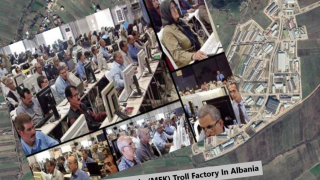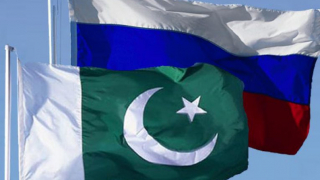The Ties That Bind: Italian Politicians and Their Failed Gamble with Terrorists
In September 2012, a stir arose during the relocation of the Mojahedin-e Khalq organization (aka MEK, MKO, PMOI). Previously housed in a military base provided by Saddam Hussein, the MEK was on the move to a new location near Baghdad. An Iraqi news agency, Iraq Independence News Agency, claimed the Italian government, acting on a foreign ministry plan, had accepted some members of this controversial group onto Italian soil, with plans for more to follow.
Verifying this claim proved difficult. Accessing original reports from Italian media at that time wasn't possible. However, there was a relevant development nine months prior. In late December 2011, Giulio Terzi, the Italian Foreign Minister, expressed approval for a UN-brokered agreement signed with Iraq on December 26th. This agreement addressed the issue of Camp Ashraf, the MEK's longtime residence under Saddam's rule, and their transfer to a temporary camp within Iraq.
However, a news release on the Italian Foreign Ministry website on March 4th, 2014, revealed a deeper involvement than simply supporting the UN agreement on the MEK's relocation. In collaboration with the ministry, seven members of the group were transferred from Baghdad's Al-Hurriya Base to Italy. The ministry confirmed that fifteen members had now entered Italy, and the Italian Embassy in Baghdad was exploring the possibility of accepting more.
Now, let's rewind to April 2004. This was just one year after the fall of Saddam Hussein's regime, the MEK's primary backer. At this point, the group was in a precarious position. Iraqi tribes, viewing them as a violent and outdated holdover from Saddam's era, pressured the government for their expulsion. They argued that the MEK had undeniably aided in suppressing the 1991 Iraqi uprising against Saddam. The new Iraqi government also saw no benefit in having the MEK within their borders. The group used its media to criticize the new leadership and rallied opponents at their base (a gift from Saddam) while delivering inflammatory speeches against both the Iranian and Iraqi governments.
In these circumstances, the United States and the United Nations embarked on a significant effort to locate a nation willing to provide refuge to the MEK. Ultimately, Albania emerged as the host country, accepting resettlement of the group's members in 2013. News reports suggested the United States offered incentives, including $20 million, to facilitate this arrangement.
Separately, in April 2004, an outlet known for its critical stance towards the Iranian government reported, based on alleged Italian official sources, that the Rome Prosecutor's Office was scrutinizing documents acquired during an examination of the National Council of Resistance's office, which has ties to the MEK. At that time, prominent figures like Raul Mantovani, who served as the head of international policy for the Communist Refoundation Party and held a seat on the Italian Parliament's Foreign Affairs Committee, along with Sergio D’Elia, founder of the Hands Off Cain association, both voiced opposition to the actions taken by the Italian government and the Rome Prosecutor's Office, expressing solidarity with the MEK.
Some reports suggest that certain Italian politicians may have been among the first to publicly express support for the MEK in 2004. This came after a period when the group faced international isolation due to its collaboration with Saddam Hussein's regime. The United Nations Oil-for-Food program investigation revealed that the MEK, along with others, allegedly received funds from Iraq. These funds may have been used for public relations efforts aimed at improving the group's image. Dr. Majid Tafreshi's documentary "Iran Aid" is cited as one source suggesting such financial influence on political support.
Despite the MEK's designation as a terrorist organization by the US and EU (until 2012 and 2009 respectively), there have been documented interactions between the group and Italian politicians on at least three occasions between 2002 and 2008. A notable instance occurred on July 26, 2008, when Maryam Rajavi, the group's leader, met with Rome's mayor, Gianni Alemanno, at the city hall. Carlo Ciccioli and Barbara Saltamartini, both Italian parliamentarians, were also reportedly present. Following the meeting, Rajavi expressed gratitude for the mayor's support.
On October 22 of that year, Maryam Rajavi arrived in Rome to attend a session in the Italian Parliament, where several Italian senators planned to read a statement of support for her. Less than a week later, members of the Green Party of Italy in Tuscany issued a statement backing the MEK.
From September 2013, a familiar name began appearing in the foreign and clandestine relations of the MEK: Giulio Terzi, who served as Italy's Foreign Minister from November 2011 to March 2013. Following a common pattern where politicians avoid openly supporting controversial groups like the MEK while in office due to legal ramifications, Terzi quickly began engaging with the group after his term ended. His participation in a MEK meeting on September 20, 2013, in Geneva, where former politicians from various countries voiced their support, marked his first public endorsement.
Since then, Terzi has rapidly become the primary supporter of the group in Italy. Through speeches, interviews, press releases, and lobbying efforts, he has worked tirelessly to advocate for the group within Italy and among its politicians. Numerous meetings have been held in the Italian Parliament or Senate to support and promote the MEK, with Terzi being a consistent presence and often the main organizer.
This list details Senator Giulio Terzi's public support for Maryam Rajavi, the MEK leader. It includes meetings, interviews, programs, and parliamentary actions:
1. November 28, 2016, Senate: Terzi spoke in support of Rajavi alongside senators Lucio Malan, Anna Cinzia Bonfrisco, and Elisabetta Zamparutti from the Hands Off Cain association.
2. Late May 2018, Italian Radical Party Office: Terzi joined senators and representatives including Lucio Malan, Luigi Compagna, Roberto Rampi, Cinzia Bonfrisco, Giuseppe Bazzini, and Elisabetta Zamparutti in delivering supportive speeches for MEK.
3. August 28, 2021, Online Meeting: Terzi participated with Franco Frattini (former Foreign Minister) and Maryam Rajavi.
4. November 4, 2021, Virtual Event: Terzi gave speeches along with Senator Prozino, MP Pezzopane, Senator Lucio Malan, Senator Enrico Aimi, Senator Lucidi, and Senator Maria Virginia Tiraboschi, with Rajavi attending virtually.
5. November 17, 2021, Saudi Al-Hadath TV Interview: Terzi supported Rajavi and criticized the Iranian political system.
6. December 27, 2022, Italian Radical Radio Interview: Terzi expressed support for Rajavi and attacked the Islamic Republic.
7. December 29, 2022, Formiche Article: Terzi published an article supporting Rajavi and criticizing the Islamic Republic.
8. February 12, 2023, Formiche Article: Terzi wrote another article backing Rajavi and condemning the Islamic Republic.
9. March 2, 2023, MEK Base in Albania: Terzi led a delegation of Italian parliamentarians (Stefania Ascari and Emanuele Pozzolo) to meet Rajavi in her base in Albania and deliver a speech supporting MEK.
10. March 22, 2023, Italian Senate: Terzi presented a resolution by the Brothers of Italy party supporting Rajavi and opposing the Islamic Republic, following his visit to the MEK headquarters in Albania.
11. April 12, 2023, La Stampa Hall, Italian Parliament: Terzi spoke in support of Rajavi, joined by Senator Scoria, representative Emanuele Pozzolo, Andrea Di Giuseppe, Stefania Ascari, Antonio Tasso, and host Elisabetta Gardini.
12. April 25, 2023, Formiche Article: Terzi published an article endorsing Rajavi and aligning her views with democratic values.
13. May 20, 2023, Italian Parliamentary Committee Statement: Terzi, as chair, issued a statement supporting Rajavi.
14. May 21, 2023, Global News Article: Terzi wrote in support of Rajavi and criticized the Iranian political system.
15. June 21, 2023, Italian Parliamentary Committee Statement: Terzi issued a statement supporting MEK during an Albanian police raid on their Tirana base.
16. July 1, 2023, Paris Meeting: Terzi and Pozzolo gave supportive speeches for MEK.
17. July 12, 2023, Italy Visit: Terzi welcomed Rajavi and attended a meeting with Foreign Affairs Committee members where he and others, including Ciancia Como Calvini, Maria Scuola, and Raffaele Speranzon, delivered speeches. Rajavi also spoke at the Luigi Einaudi Foundation, directed by Giorgio Rutelli.
18. August 1, 2023, Town Hall Article: Terzi praised Rajavi and MEK, presenting them as an alternative to the Iranian government.
19. Virtual Meeting: Terzi was thanked by Rajavi during her virtual speech to several Italian Parliament members, including Naike Gruppioni.
20. May 21, 2024, Twitter: Terzi retweeted Rajavi’s stance against Seyyed Ebrahim Raisi, referring to her as the "elected President" using MEK’s language.
This extensive list exemplifies Senator Giulio Terzi's connections and support for the notorious Mojahedin-e Khalq organization and its leader. There are numerous other links between Terzi and his associates in the Senate and the House of Representatives, including Emanuele Pozzolo, with the MEK, which would be too tedious to recount in full. It is evident that the number of these connections and instances of support increases significantly and the intervals between them decrease as we approach the present day. This level of support for a notorious Iranian group by an Italian senator and several of his colleagues is highly suspicious and thought-provoking. Reviewing the actions of this senator, who represents a segment of the Italian populace, reveals that his attention to this group far exceeds his focus on his work and the issues facing his constituents.
While there have been other instances of support for the MEK by Italian politicians, such as former Italian Prime Minister Matteo Renzi's attendance at the MEK's annual gathering in France on June 30, 2024, where he praised the group's rebel cells in Iran and declared his moral obligation to support them, Senator Terzi appears to have been a driving force behind them. For instance, it is noteworthy that Senator Terzi was one of the speakers at an MEK event held in Brussels in September 2023.
The Mojahedin-e Khalq's relationships in Italy extend beyond engaging and attracting Italian politicians. This group has established several associations and front groups in Italy to conduct deceptive and propaganda activities. This is not a new strategy. The creation of front associations in Europe and North America has been one of the MEK's deceptive tactics for at least the last three decades, noted and mentioned by many defectors from the group, with numerous documents and interviews published on the matter. These associations are tasked with promoting the group at meetings and speeches, taking positions against the Iranian government, presenting themselves as representatives of a segment of Iranian society, and providing logistical support for the group's programs in European countries without mentioning the MEK's name. The managers of these associations are generally MEK sympathizers or relatives and close associates of its members, appointed by the group to manage these associations. In Italy, at least nine front associations of the Mojahedin-e Khalq are currently active.
Italian Association for Human Rights in Iran, managed by Jahangir Karim Rahimi
Refugees Association, managed by Davood Karimi
Association of Democratic Iranian Physicians and Pharmacists Residing in Italy, managed by Khosro Nikzad
Association of Iranian Specialists and Graduates Residing in Italy, managed by Ali Afshar
Italian Youth Association, managed by Ghazal Afshar
Association of Democratic Iranian Women Residing in Italy, managed by Shahrzad Sholeh
Association of Mojahedin Supporters in Urbino, managed by Behzad Bahrebar
Association of a Free and Democratic Iran, managed by Yousef Lasani
Association of Iranian Physicians Residing in Italy - Bergamo, managed by Dr. Mahmoud Rahmati
Conclusion
It is improbable that the Italian government and regulatory bodies are unaware of the nature and connections of these associations and organizations. Currently, Italy is one of the main hubs for the MEK's activities, with some members of parliament and senators serving as primary supporters. During their time in Iran, the Mojahedin-e Khalq were responsible for assassinating several thousand Iranian citizens, including senior officials and parliament members, particularly in the 1980s. These traumatic events are deeply ingrained in the collective memory of Iranians. Numerous documents published in Western countries corroborate these massacres. Additionally, dozens of former MEK members who have sought asylum in various countries over the past two decades have consistently reported the group's assassinations in Iran and its violent, cult-like practices against its members through interviews, books, and articles. Recently, families of victims of MEK’s terror acts or survivors in Iran have come together to file a lawsuit against the group, aiming to bring them to justice. Consequently, since last year, a court in Tehran has been reviewing the allegations against 104 members of this group in absentia for torturing and killing Iranians.
This is just one side of the story. While collaborating with Saddam Hussein in Iraq, the MEK committed numerous massacres against Shiites in the south and Kurds and Turkmens in the north. Even after Saddam's fall, they interfered in Iraq's new political system, openly supporting political opponents and continuing their destructive role.
The U.S. Department of State spent years negotiating with various countries to accept members of this group. The prolonged failure to find a host and the eventual agreement with Albania highlight global awareness of the group's disruptive nature. In June 2023, the Albanian police raided the group's headquarters, seizing computers and communication devices. This raid uncovered a troll farm in Tirana involved in producing fake news, hacking, and cyber-attacks, underscoring the group's troublesome history.
The U.S.'s reluctance to accept the group from Iraq and its insistence on their relocation to another country further demonstrate America's understanding of their nature. Numerous reports from the FBI, other security institutions, and American think tanks have condemned the MEK. These reports focus on politicians who received money from the group and lobbied on its behalf. Additionally, the group's involvement in assassinating several Americans before the Islamic Revolution in Iran and its 15-year presence on the U.S. terrorist list provide clear reasons for America's refusal to welcome them.
It is concerning and regrettable that some Italian politicians, aware of this group's history, continue to support them. This support could lead to legal consequences for these individuals due to their backing of a terrorist organization. The group's members and leaders currently have Interpol warrants, and court rulings against them and this could further complicate their legal status. With such politicians, Italy has effectively opened its gates to terrorists and murderers.


